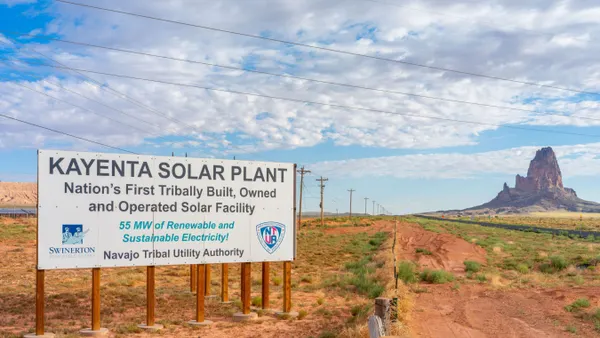Dive Brief:
- The Sierra Club says six states have proposed legislation this year that would add to the cost of owning an electric vehicle, worrying clean energy advocates who say owning emissions-free vehicles should be incentivized rather than taxed.
- States with new EV-fee bills include Indiana, South Carolina, Kansas, Tennessee, New Hampshire, and Montana. About 10 other states already have similar fees instituted.
- Advocates of the new fees say they are necessary to make up for falling gasoline taxes, which are used to fund road upkeep, as vehicles have become more efficient, and EVs would avoid the cost altogether.
Dive Insight:
Electric vehicle proponents worry a spate of fees could dissuade car buyers from going emissions-free, but backers say the new costs are necessary and that EV owners on the roads are having their miles subsidized by traditional vehicles.
Several states already have fees on all-electric and hybrid vehicles, including Wyoming, Colorado, Georgia, Washington and others, ranging from $50 to $300 per driver per year. According to the Sierra Club, Georgia—which has an EV adoption rate of about 2.2 per 1,000 vehicles— previously offered a $5,000 tax credit but has replaced that with a $200 annual fee. According to the group, EV sales then plummeted 80%.
"This attack is coming at a time when EVs are just starting to take off within the larger auto industry—and it’s likely no coincidence this attack is coming now," Gina Coplon-Newfield, director of the Sierra Club's Electric Vehicles Initiative, wrote in a blog post.
Last year, the United States had almost a half million electric vehicles on the road, just a fraction of the 250 million or more vehicles owned. California has led the country in electric vehicle adoption, with about 20% of the nation's EVs on the road. Hawaii, with its abundant solar, smaller geographic area and sequestered grid, is also looking to widespread adoption.
California has an EV adoption rate of about 4.7 per 1,000 vehicles, while all the West Coast states, and Georgia, have adoption rates over 2.0 per 1,000.
Manufacturers are building new longer-range and more affordable vehicles, possibly helping to spur adoption. Tesla's Model 3 is set to go into production this year, starting at about $35,000, and the Chevy Bolt is about the same price.













